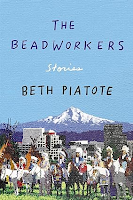A few years ago one of these unextinct Sinixt men killed an elk in his homelands. Then he called the game officials in Canada and turned himself in. They took the bait. When the province pressed charges against him for taking big game without a license, he pleaded not guilty. He cited his aboriginal rights to hunt in his own territory. And now that case is in court, and Canada will have to look at that man, standing in the middle of the room, and all his people around him, and Canada will have to admit that the Sinixt are not extinct. The Sinixt man is very brave. And so is the elk who gave himself. That man and that elk knew each other from long ago; they met in dreams and sweat, blood and forest. The man needed the elk; the people need the elk. Without the elk, there would be no case, no path home, no court for the man to present himself to the state and say: we are alive.
In August, I visited Big Hole National Battlefield in Montana, where American forces ambushed a group of Nez Perce who were in the midst of a "fighting retreat," trying to make their way to the Canadian border to escape confinement on reservations. Big Hole is hallowed ground, still a cemetery, where the bodies of Nez Perce leaders were buried. It's a place you want to walk through quietly. I bought Beth Piatote's book The Beadworkers in the gift shop there. I hadn't remembered it at the time, but I'd read some of Piatote's work in Poetry; I had been struck by the power in her appropriation of Walt Whitman's "Song of Myself." Her collection The Beadworkers is a lovely kind of extended coda to a quiet walk through Big Hole: a loud assertion that the Nez Perce are still here, and their living stories are worth as much attention as their silences, their absences.
The pieces in The Beadworkers are a diverse bunch: some are relatively straightforward, like "Fish Wars," which might be my favorite. In "Fish Wars," a young girl worries that the tense conversations she overhears between her parents mean that, like her friend's parents, they're headed for divorce. When her father is arrested, her white schoolmates taunt her--just another drunk Indian--but the truth is that he's been arrested for illegal fishing, an act of civil disobedience in the "Fish Wars" of the 1970s and 80s in which tribes around Puget Sound pressured the government to recognize their treaty rights. "Falling Crows" tells the story of a young Indian who comes back from Afghanistan missing an arm and leg, and his extended family's attempts to help him adjust to his new existence.
But others are more experimental, like the trio of pieces labeled "Feast I," "Feast II," and "Feast III" that open the book. "Feast I" is a poem that, littered with Salish words, at first estranges and alienates a casual reader. But "Feast II" provides a kind of dictionary or key, elaborating on each term. We read the section quoted above and now we know what it means when Piatote writes, "where wewukiye bugle / in fog-mantled mornings. "Feast III," a story about a pair of women living on the Nez Perce reservation of the early 20th century, seems rather slight and uneventful on its own, but when paired with the other two parts we see the way that the poem, the unfamiliar Salish words of "Feast I," the piecemeal anecdotes of "Feast II," combine in the actual living of a life.
The most unusual piece in The Beadworkers is "Antikoni," a dramatic retelling of the Antigone myth. In Piatote's version, the brother Polynaikas is a set of remains held in a tribal museum, and the king Kreon is the tribal chief who punishes Antikoni/Antigone for stealing the remains and ceremonially burying them. Interestingly, the piece depicts Kreon as rather understandably trying to navigate the demands of the tribe and the demands of the federal government; NAGPRA--the Native American Graves Protection and Repatriation Act--is depicted as a kind of bureaucratic force that keeps tribal members like Antikoni tied up in red tape and reinforces the very practices it's supposed to solve. Tribal politics are a repeated theme of The Beadworkers; in "wIndin!" a woman works to create a tongue-in-cheek board game that satirizes the greed and self-interest of tribal government. Kreon is something of an accommodationist, who thinks he's doing the best he can for his people under the law, but Antikoni makes it clear that in doing so he has alienated himself from them: "I do pity you, Uncle, for you have long ago admitted yourself / To this prison, a darkness of another name."
Thematically, this is one of the most interesting things about The Beadworkers: its political approach is as much about tribal government as it is the federal government. Given the extent to which Indigenous writers know they are writing for a largely non-Indigenous audience, tribal government tends to be more or less ignored. Piatote does a great job of making a critique that's understandable, even universal. And she does so with a great deal of creativity and innovation.


No comments:
Post a Comment